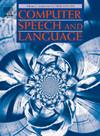E2EPref:基于偏好的端到端语音质量评估框架,可减轻直接评估分数的偏差
IF 3.4
3区 计算机科学
Q2 COMPUTER SCIENCE, ARTIFICIAL INTELLIGENCE
引用次数: 0
摘要
在语音质量评估(SQA)中,直接评估(DA)分数经常被用作模型训练的目标。然而,由于DA分数本身存在听众明智偏差和等范围偏差,因此用DA分数训练的模型预测的分数并不总是反映真实的质量分数。在本研究中,我们通过将DA分数预测框架转换为偏好预测框架,将基于偏好的学习用于SQA。我们提出的端到端基于偏好的SQA框架(E2EPref)旨在直接预测系统级质量分数。它包含四个组成部分:对生成、偏好函数、阈值选择和偏好聚合。通过E2EPref的这些功能,我们的目标是减轻直接使用DA分数进行训练所带来的偏见。在实验中,我们发现该框架有助于SQA模型减轻偏差,从而获得更高的系统级Spearman 's秩相关系数和线性相关系数。此外,我们还评估了该框架在零射击域外场景下的质量预测能力。最后,我们在已经包含DA分数的数据集上收集主观偏好分数,并分析使用DA分数与主观偏好分数作为基础真理或用于模型训练的优缺点。本文章由计算机程序翻译,如有差异,请以英文原文为准。

E2EPref: An end-to-end preference-based framework for speech quality assessment to alleviate bias in direct assessment scores
In speech quality assessment (SQA), direct assessment (DA) scores are frequently used as the objective of model training. However, because the DA scores themselves have listener-wise bias and equal range bias, the scores predicted by models trained with DA scores do not always reflect the true quality score. In this study, we utilize preference-based learning for SQA by transforming the DA score prediction framework into a preference prediction framework. Our proposed End-to-End Preference-based framework (E2EPref) for SQA is designed for predicting system-level quality scores directly. It contains four proposed components: pair generation, preference function, threshold selection, and preference aggregation. Through these functions of E2EPref, we aim to mitigate biases introduced by directly using DA scores for training. In experiments, we show that this framework helps the SQA model alleviate biases, resulting in higher system-level Spearman’s rank correlation coefficient and linear correlation coefficient. Additionally, we evaluate the quality prediction capability of the framework in a zero-shot out-of-domain scenario. Finally, we collect subjective preference scores on a dataset already containing DA scores and analyze the advantages and disadvantages of using DA scores versus subjective preference scores as the ground truth or for model training.
求助全文
通过发布文献求助,成功后即可免费获取论文全文。
去求助
来源期刊

Computer Speech and Language
工程技术-计算机:人工智能
CiteScore
11.30
自引率
4.70%
发文量
80
审稿时长
22.9 weeks
期刊介绍:
Computer Speech & Language publishes reports of original research related to the recognition, understanding, production, coding and mining of speech and language.
The speech and language sciences have a long history, but it is only relatively recently that large-scale implementation of and experimentation with complex models of speech and language processing has become feasible. Such research is often carried out somewhat separately by practitioners of artificial intelligence, computer science, electronic engineering, information retrieval, linguistics, phonetics, or psychology.
 求助内容:
求助内容: 应助结果提醒方式:
应助结果提醒方式:


